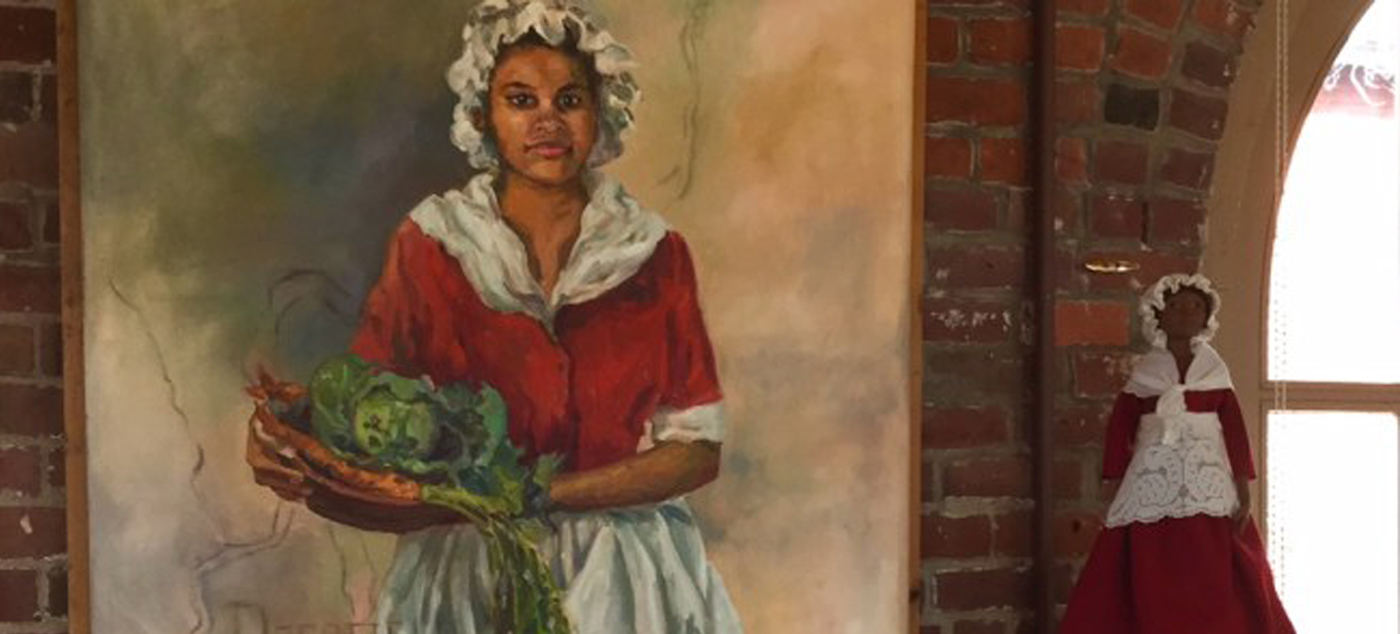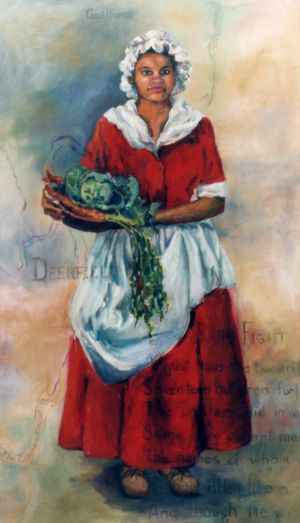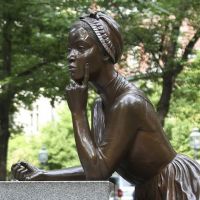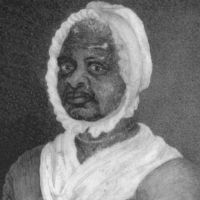Primary Source
'Bars Fight'
by Lucy Terry Prince
August 'twas the twenty-fifth,
Seventeen hundred forty-six;
The Indians did in ambush lay,
Some very valiant men to slay,
The names of whom I'll not leave out.
Samuel Allen like a hero fout,
And though he was so brave and bold,
His face no more shalt we behold
Eteazer Hawks was killed outright,
Before he had time to fight, -
Before he did the Indians see,
Was shot and killed immediately.
Oliver Amsden he was slain,
Which caused his friends much grief and pain.
Simeon Amsden they found dead,
Not many rods distant from his head.
Adonijah Gillett we do hear
Did lose his life which was so dear.
John Sadler fled across the water,
And thus escaped the dreadful slaughter.
Eunice Allen see the Indians coming,
And hopes to save herself by running,
And had not her petticoats stopped her,
The awful creatures had not catched her,
Nor tommy hawked her on the head,
And left her on the ground for dead.
Young Samuel Allen, Oh lack-a-day!
Was taken and carried to Canada.







